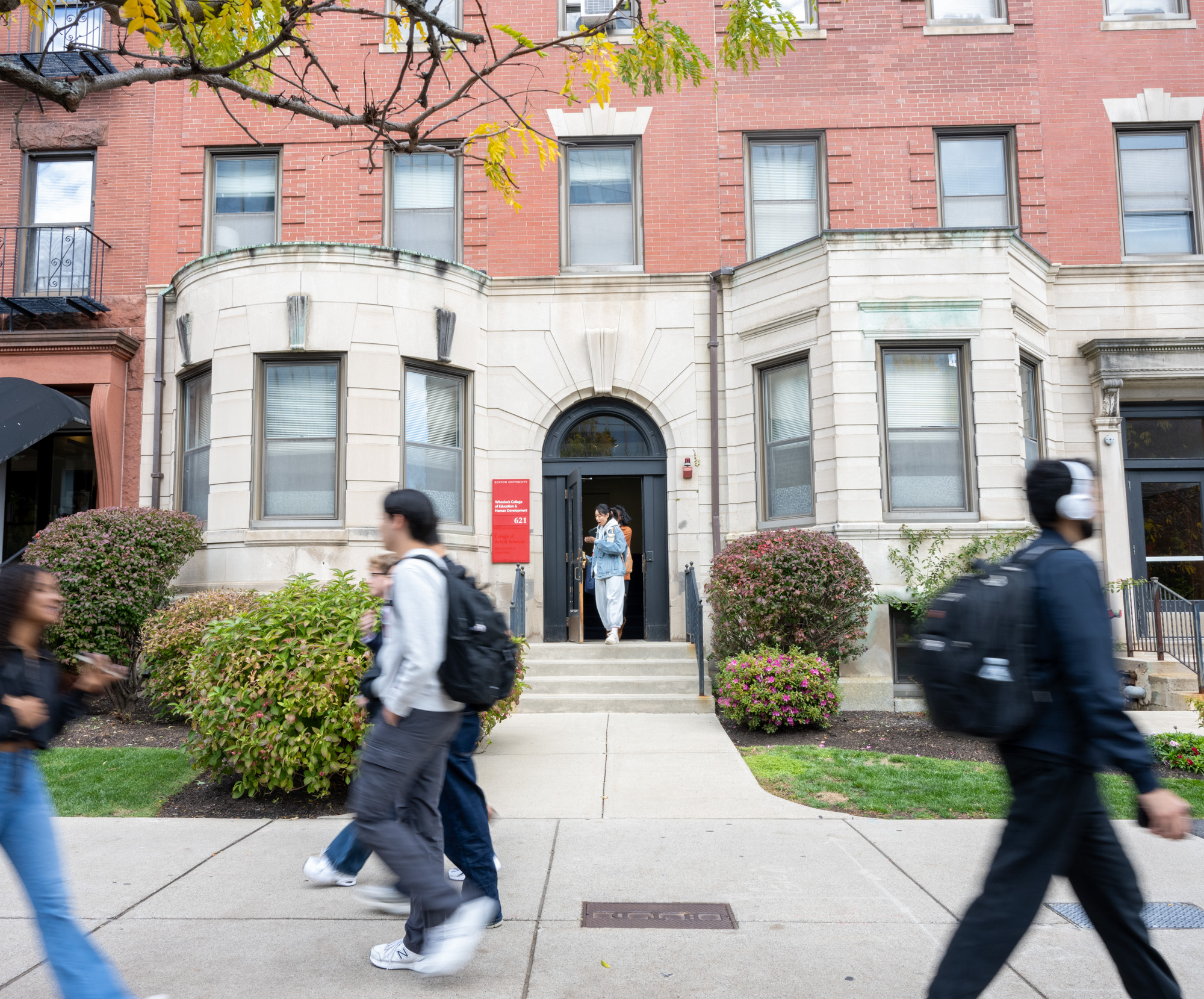Boston University released the findings of its “Living Our Values Initiative” on Oct. 15, unveiling eight university-wide values.

The eight values — integrity, inclusion, community, collaboration, excellence, learning, service and global — were identified through surveys, focus groups and discussions with BU community members.
BU President Melissa Gilliam launched the initiative last fall to “identify and practice the core principles and beliefs that unite us all,” according to a letter she sent to the BU community.
“This was an opportunity for us to stop and reflect on who we are and where we want to go,” said Timothy Longman, a member of the initiative’s steering committee and associate dean for academic affairs in the Pardee School of Global Studies.
The year-long process included 94 meetings with faculty, staff, students, alumni and university leadership, according to the Living Our Values website.
Clark Warner, a steering committee member and a lecturer in the Questrom School of Business, said these meetings included “qualitative discussions” surrounding BU’s culture.
The committee used research methods, such as analyzing how often values were said together, to determine if two values should be combined or kept separate, Warner said.
Participants also selected five values most important to them out of a longer list, Warner said, in order to narrow down the most important.
The steering committee wrote definitions for the final eight values based on their findings, published on the Living Our Values website.
BU defines inclusion as “finding strength in difference,” collaboration as “partnering for progress [and] building together” and excellence as “striving to be better tomorrow than today.”
The value learning defines education as the “soul” of BU, and service is defined as an “enduring part of Boston University’s legacy.”
The value “global” is defined as “embracing [BU’s] global nature.” To embrace the “global” value, the University will “actively recruit and welcome international students and scholars as vital contributors to our community,” according to the website.
Community is defined as “intentionally building common ground” by “engag[ing] in respectful dialogue across differences.”
BU College Republicans President Zac Segal, who wrote an open letter to Gilliam about conservative beliefs being “marginalized” on campus, said BU lacks space for common ground.
“There’s a lot of problems at this University with people not wanting to look at common ground and just purely looking at differences,” he said.
He added that BU’s campus is an “echo chamber” for a singular ideology.
BU College Democrats Vice President Anabil Biswas, however, does not feel BU’s culture prevents discussion.
“The current atmosphere we have right now, where anyone can involve themselves in any organization, club or group they want to, is perfectly fine and conducive to have dialogue,” he said.
The value integrity is defined as “saying and doing what we mean.” This means BU “is committed to remaining true to its mission and values,” the initiative’s website reads.
Earth and environment professor Nathan Phillips, who reported having political signs removed from his office window by administration last semester without his consent, said his experience with BU administration has not lived up to these values.
Philips added that BU’s refusal to stand up to the Trump administration amid federal crackdowns on higher education institutions is not honoring the legacy of BU alumni. He cited alumni Martin Luther King Jr. and Elie Wiesel, who wrote about the obligation to speak out against injustice.
“BU’s throwing away those values, and that’s our identity,” he said. “If we don’t have that, we have no integrity.”
Phillips said the initiative “speaks to the values that our institution should have,” but does not.
“Actions speak louder than words,” he said. “I’m considering [the values] to be rhetoric, rather than actions, because the actions that have been taken are not consistent with those words.”
The initiative identified “great values for the university to aspire to,” but questioned whether they’d bring real change, Segal said.
“It’s all well writing these words on a website, but is there actually going to be any meaningful change [from this initiative] to see?” he said.
The initiative was co-led by Kimberly Howard, a professor of counseling psychology and applied human development at the Wheelock College of Education and Development, and Sue Kennedy, BU associate vice president for Strategy and Innovation.
These values define not only what BU should aspire to, but “what BU is” Howard said.
“[The initiative will] codify what we’ve already been doing and the way that we’ve already been living and working here on campus,” she said.
Releasing the eight values is just the first step, Howard said. A new steering committee will focus on community engagement efforts to ensure BU lives the values they identified.
Defining these values will guide BU moving forward, Longman said.
“These [values] become guideposts for us,” he said. “The university commits themselves to them, and so we can hold the university to them as well.”


















































































































